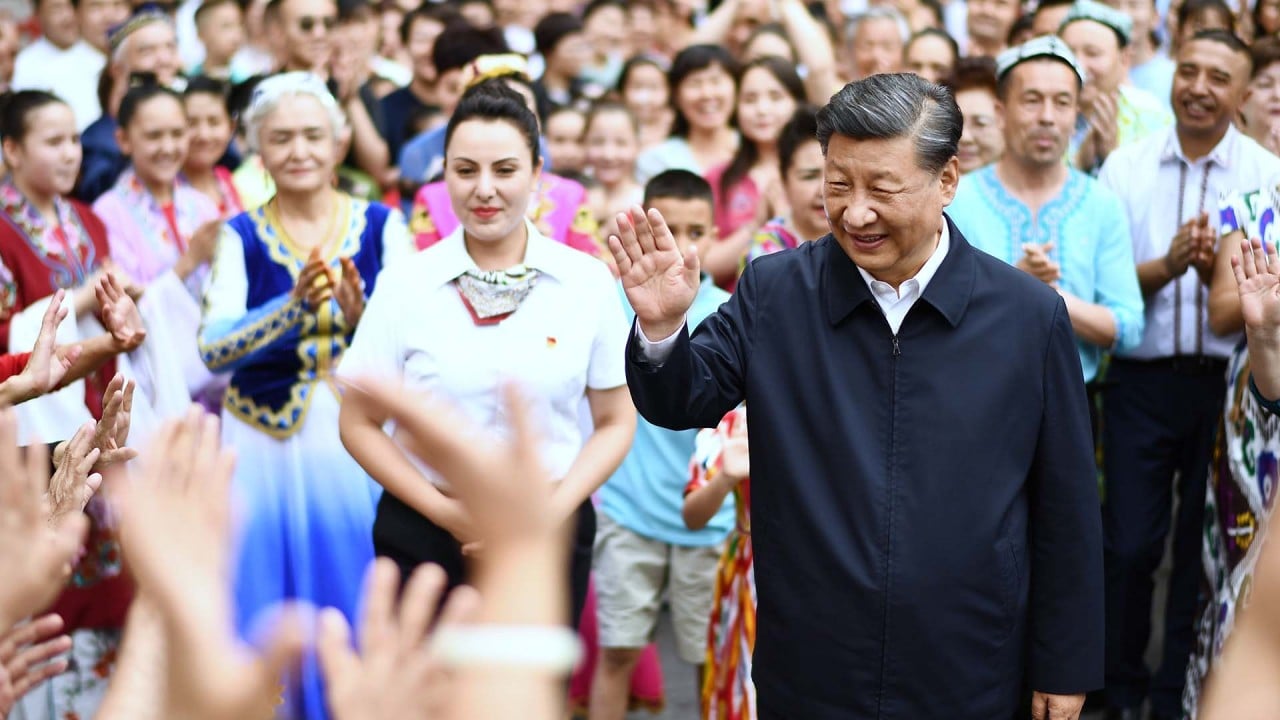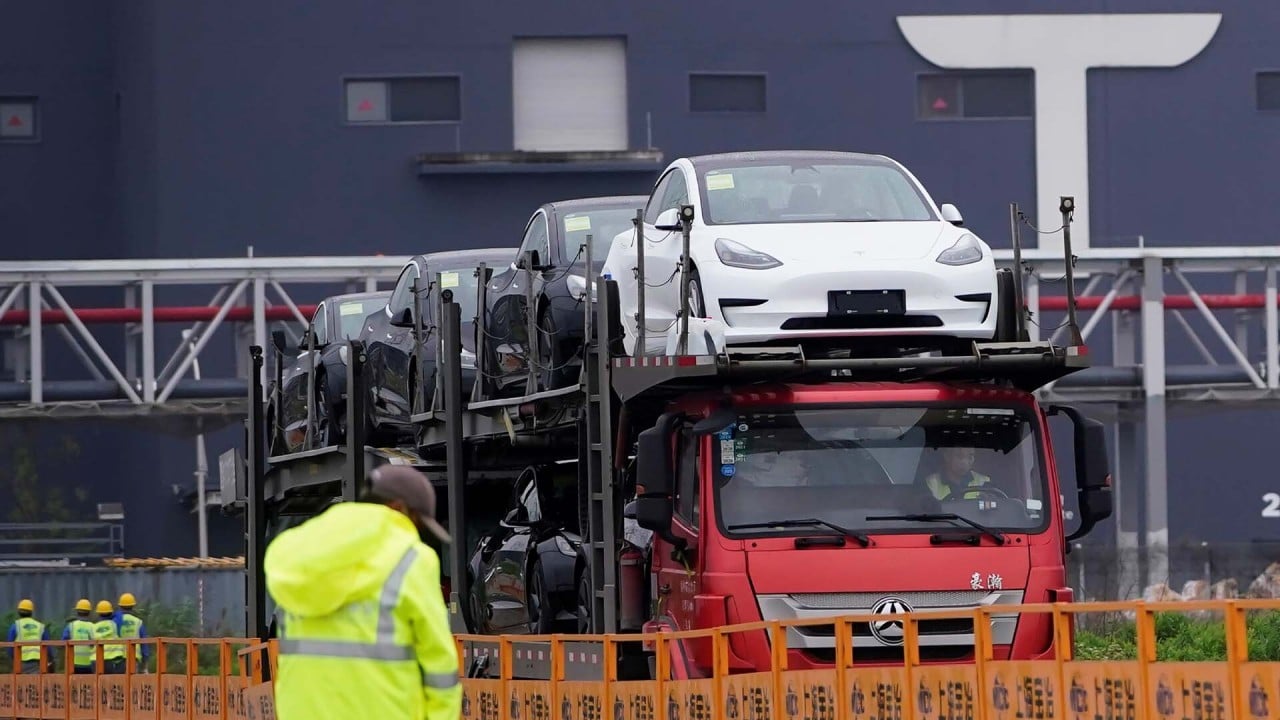
China calls Xinjiang vote at UN Human Rights Council a win against US ‘coercion’
- After defeating a bid to debate China’s alleged abuses in Xinjiang, Beijing says developing countries are ‘clearly aware’ of Western motives
- Germany says the vote marks ‘a dark day for human rights’
The remark came after the United Nations’ top human rights body rejected a US-led proposal to debate alleged abuses targeting Uygurs and other Muslim minority groups in the far western Chinese region.
“For some time now, the US and some other Western countries have been misinforming the public about Xinjiang and seeking political manipulation in the name of human rights simply to smear China’s image and contain China’s development … the international community would not be easily misled,” a foreign ministry spokesman said.
At the 47-member Human Rights Council, 17 countries, including most Western states as well as Japan and South Korea, voted in favour of the proposal to hold a debate on Xinjiang at its next session in March.
Nineteen countries – almost all Muslim-majority states and all African countries, with the exception of Somalia – sided with Beijing and voted against the proposal.
Eleven countries abstained, including India, Malaysia, Mexico and Ukraine.
Nations that voted for the debate said the result was a disappointment, but they would continue advocating for human rights.
Belarusian, Russian, Ukrainian rights activists win Nobel Peace Prize
Beijing cast the result as a willingness among developing countries to resist Washington’s “coercion”, while reiterating that measures in Xinjiang were aimed at countering terrorism, radicalisation and separatism in the region, which has not seen a terrorist incident in the past five years.
Chen Xu, head of the Chinese mission in Geneva, said that over the past six decades, the Uygur population in Xinjiang had grown from 2.2 million to around 12 million, and average life expectancy had risen from 30 to 74 years.
Beijing also urged the human rights agency to direct attention to the “serious human rights violations” of Western states, including “massive killings of innocent civilians in overseas military operations”, their handling of refugees and migrants, and systemic racism and gun violence.
The results were condemned by Washington, while other Western governments and organisations said they were disappointed.
“No country is above scrutiny. The [Human Rights Council] let the people of Xinjiang down,” the Dutch mission said on Twitter.
Sophie Richardson, China director of Human Rights Watch, said the states that voted in favour of the debate proposal were “willing to buck the pressure from China to remain silent”.
Xinjiang’s cotton harvest is here, but where is the frenzied buying?
The World Uygur Congress, an advocacy organisation partially funded by Washington’s National Endowment for Democracy, said the vote result “betrayed principles of human rights, non-discrimination and accountability”.
“We deeply regret … that 19 other governments decided to oppose dialogue on the issue, while 11 states preferred to remain silent in light of genocide and crimes against humanity,” said Dolkun Isa, the group’s president.
Phil Lynch, director of the International Service for Human Rights, called the voting record “shameful” on Twitter, and singled out Ukraine’s abstention for “[betraying] values of solidarity and accountability to which it appeals”.



